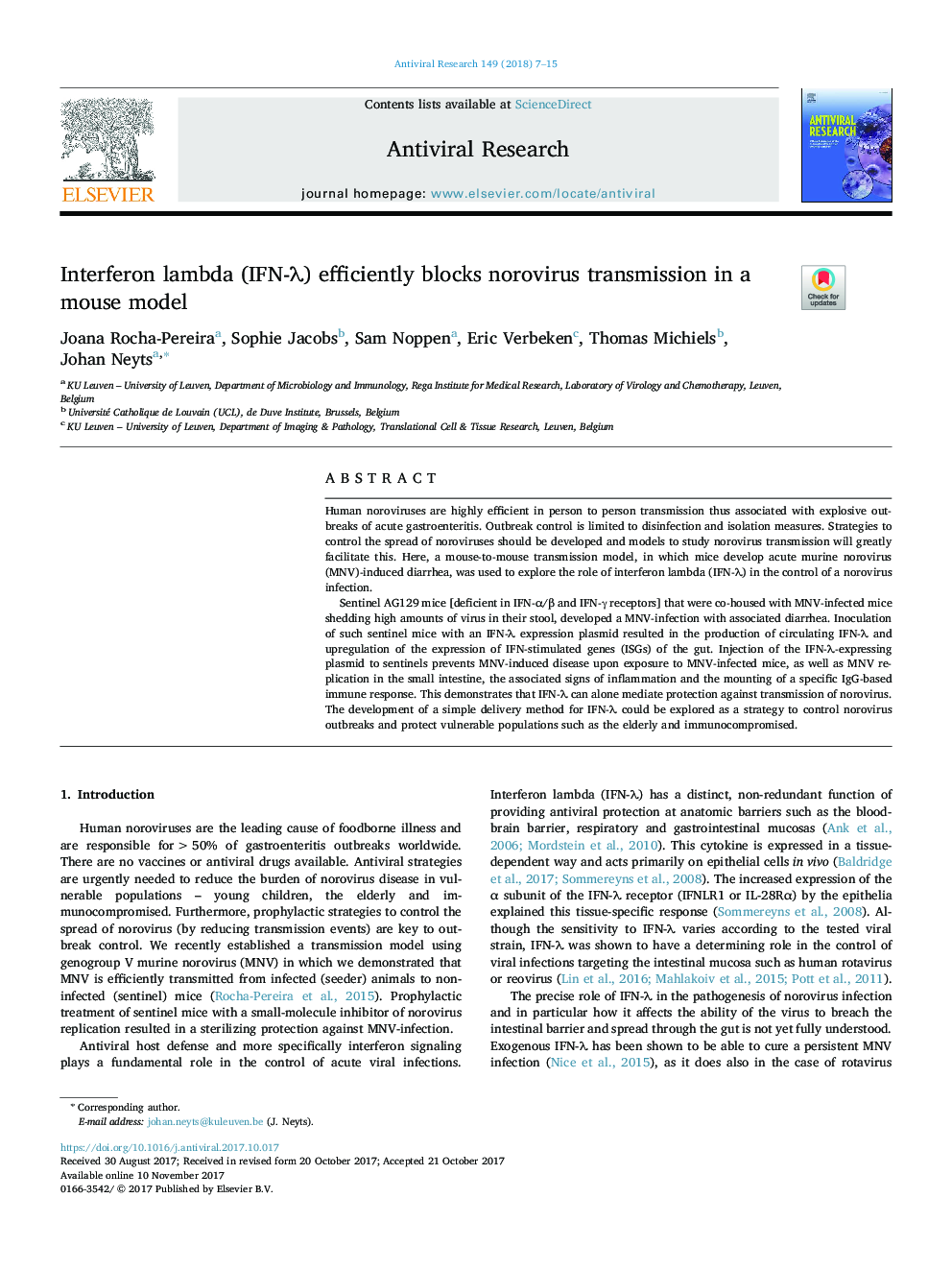| Article ID | Journal | Published Year | Pages | File Type |
|---|---|---|---|---|
| 8523408 | Antiviral Research | 2018 | 9 Pages |
Abstract
Sentinel AG129 mice [deficient in IFN-α/β and IFN-γ receptors] that were co-housed with MNV-infected mice shedding high amounts of virus in their stool, developed a MNV-infection with associated diarrhea. Inoculation of such sentinel mice with an IFN-λ expression plasmid resulted in the production of circulating IFN-λ and upregulation of the expression of IFN-stimulated genes (ISGs) of the gut. Injection of the IFN-λ-expressing plasmid to sentinels prevents MNV-induced disease upon exposure to MNV-infected mice, as well as MNV replication in the small intestine, the associated signs of inflammation and the mounting of a specific IgG-based immune response. This demonstrates that IFN-λ can alone mediate protection against transmission of norovirus. The development of a simple delivery method for IFN-λ could be explored as a strategy to control norovirus outbreaks and protect vulnerable populations such as the elderly and immunocompromised.
Related Topics
Life Sciences
Immunology and Microbiology
Virology
Authors
Joana Rocha-Pereira, Sophie Jacobs, Sam Noppen, Eric Verbeken, Thomas Michiels, Johan Neyts,
